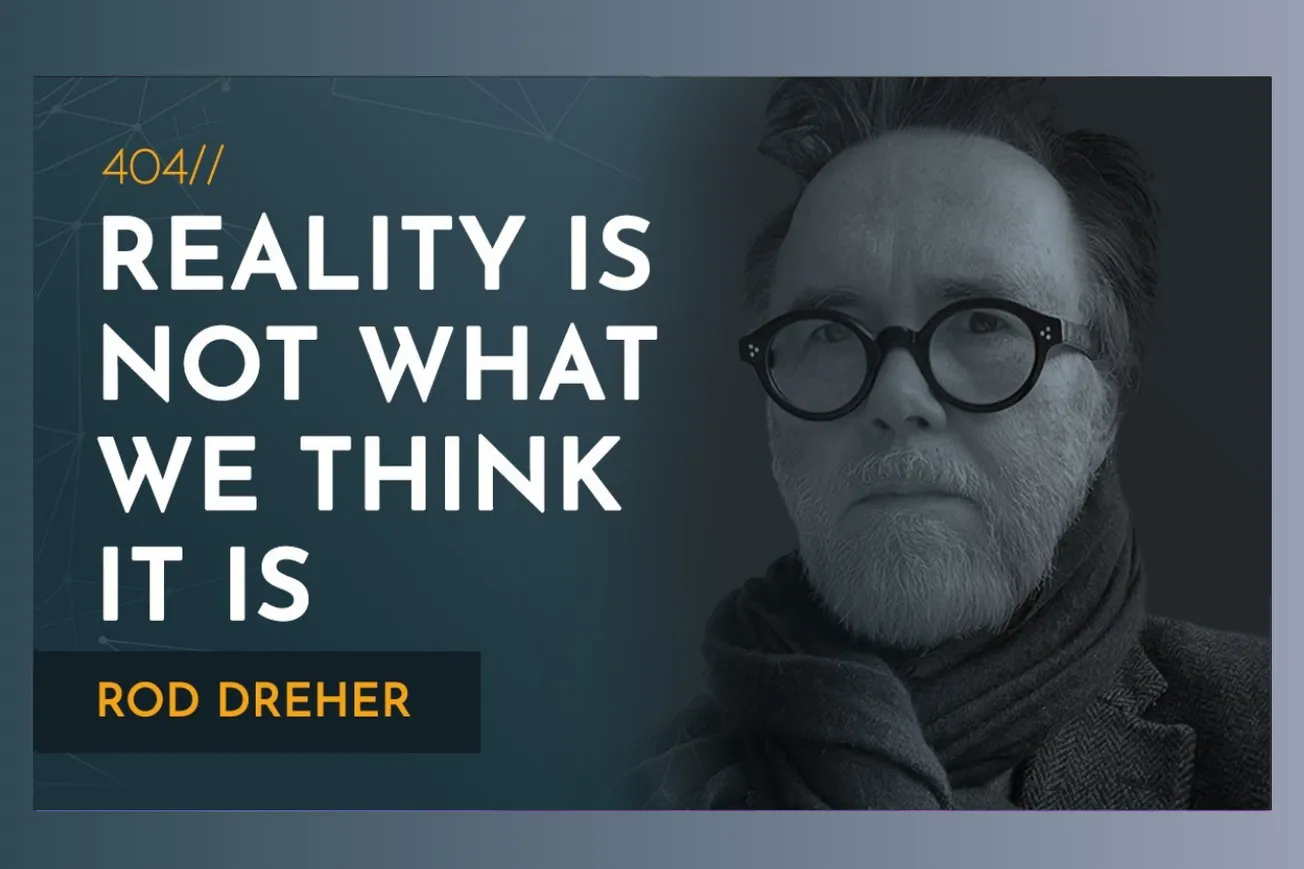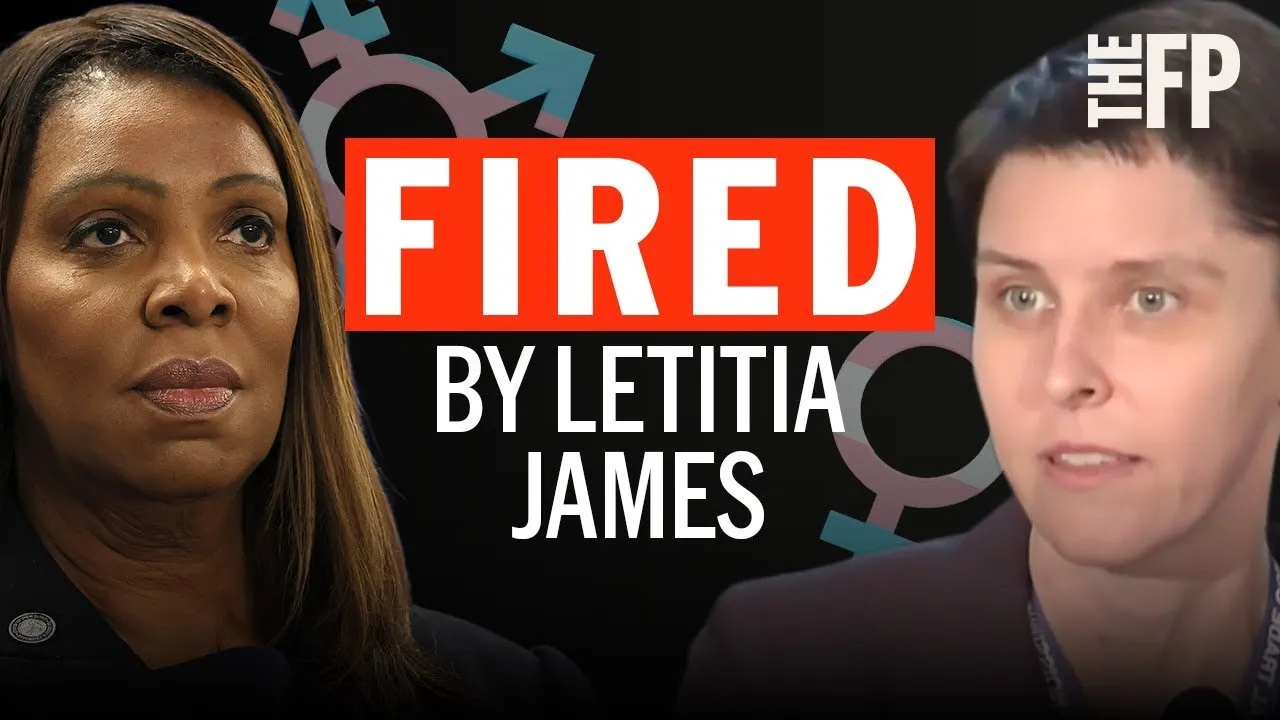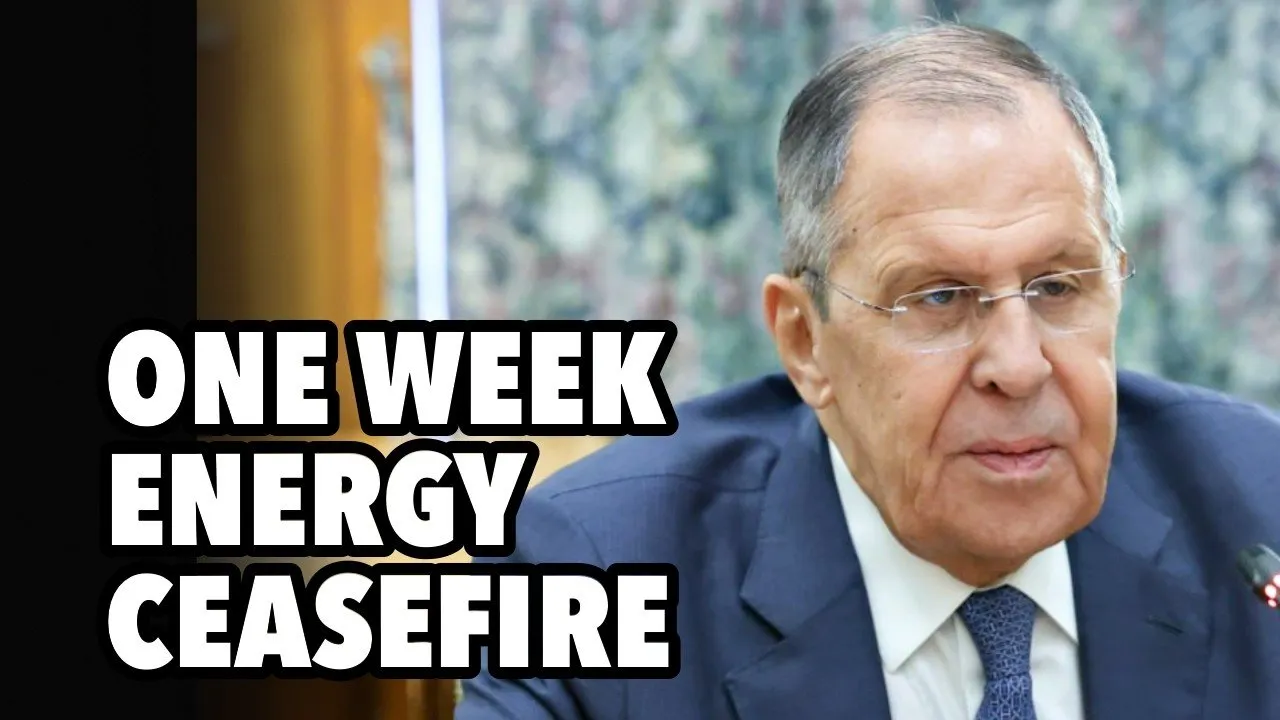Table of Contents
Western materialism blocks spiritual perception while paranormal phenomena and religious experience reveal reality's deeper dimensions beyond scientific measurement.
Key Takeaways
- Materialism creates an "iron cage of rationality" that dismisses spiritual realities despite overwhelming historical and contemporary evidence
- Science provides practical models but cannot make definitive statements about ontological truth or the ultimate nature of existence
- Two distinct ways of knowing exist: analytical left-brain reasoning and perceptual right-brain integration through experience and revelation
- Paranormal phenomena including UAPs represent genuine spiritual encounters that challenge purely materialist explanations of reality
- Eastern Christianity emphasizes experiential heart-knowledge over Western analytical approaches to understanding divine truth
- Love requires sacrifice and suffering serves as necessary purification for spiritual growth and authentic human development
- Medieval peasants possessed psychological frameworks better suited for navigating multi-dimensional reality than modern rational individuals
Timeline Overview
- 00:00–15:00 — Personal Journey: Rod Dreher's path from Louisiana journalism to Budapest, family trauma, chronic illness recovery through Dante, and marriage dissolution
- 15:00–30:00 — Re-Enchantment Framework: Introduction to "Living in Wonder" trilogy, encounters with paranormal phenomena, and the necessity of recovering sacred awareness
- 30:00–45:00 — Materialism Critique: Analysis of Western disenchantment, Jeffrey Kripal's "iron cage of rationality," and scientific limitations in explaining spiritual realities
- 45:00–60:00 — Ways of Knowing: Kierkegaard's "truth is subjectivity," Ian McGilchrist's brain hemisphere research, and distinguishing conceptual from perceptual understanding
- 60:00–75:00 — Paranormal Evidence: UAP encounters, exorcism experiences, historical testimonies of supernatural phenomena, and the relationship between prayer and spiritual protection
- 75:00–90:00 — Eastern vs Western Christianity: Differences in approaching divine knowledge, the concept of nous (noetic faculty), and experiential versus analytical faith traditions
From Louisiana Journalism to Budapest Philosophy Through Personal Crisis
Rod Dreher's intellectual journey spans decades of cultural commentary across major publications including The American Conservative, National Review, and The Wall Street Journal. His geographical trajectory from small-town Louisiana to Washington, New York, Dallas, and ultimately Budapest reflects deeper spiritual searching catalyzed by family trauma and personal crisis. After returning to his 2,000-person hometown in 2012 following his sister's death, Dreher encountered "The Dark Secret of the family" that destroyed his expectations of homecoming.
The revelation that his family "didn't actually want us back there" triggered chronic mononucleosis lasting three years, during which traditional medical approaches proved insufficient. Healing came through intensive engagement with Dante's Divine Comedy, applying the medieval poet's spiritual framework to contemporary suffering. This experience demonstrated the therapeutic power of pre-modern wisdom traditions for addressing modern psychological crises.
The family crisis ultimately destroyed Dreher's marriage despite "10 years to try to save the marriage," leading to his relocation to Europe with his older son. His current position at a Budapest think tank provides intellectual freedom to explore intersections between religion, culture, and politics without institutional constraints. This geographic and intellectual displacement mirrors broader Western spiritual homelessness.
Dreher's trilogy of recent books—The Benedict Option, Live Not by Lies, and Living in Wonder—addresses Christian survival strategies in post-Christian societies. The Benedict Option received extensive mainstream coverage in 2017, while Live Not by Lies, despite selling 210,000 copies and spawning an Angel Studios documentary, received "zero mainstream media coverage" for calling out wokeness as totalitarian. This media reception illustrates ideological gatekeeping around acceptable spiritual and political discourse.
Materialist Worldview Creates Spiritual Blindness and Cultural Emptiness
Jeffrey Kripal's concept of the "iron cage of rationality" describes Western civilization's imprisonment within Enlightenment frameworks that dismiss non-material realities. This disenchanted worldview reduces existence to measurable matter without inherent meaning, creating what Noah Harari identifies as modernity's exchange of "meaning for power." While this trade-off enabled technological dominance and material prosperity, it left contemporary humans on "a blasted Heath" psychologically and spiritually.
Carlos Alatore's Yale University study "They Flew" documents hundreds of witnessed testimonies of Catholic mystics literally flying during Spain's Counter-Reformation period. These accounts, signed by multiple credible witnesses, demonstrate how modern materialist assumptions lead to wholesale dismissal of historical evidence that would be accepted in any other field of inquiry. The systematic rejection of supernatural testimonies reflects ideological bias rather than scientific rigor.
Contemporary Western Christianity has largely succumbed to disenchantment, reducing faith to "nothing but morals ethics" while treating angels, demons, and miraculous interventions as archaic embarrassments. This bowdlerized Christianity lacks the power to compete with secular alternatives because it concedes materialism's fundamental premises about reality's nature. Churches that embrace purely naturalistic explanations become indistinguishable from social service organizations.
Medieval peasants possessed psychological frameworks superior to modern rational individuals for navigating multi-dimensional reality. They understood human existence within a cosmos populated by "God, angels, demons, all kinds of things" requiring spiritual navigation skills rather than denial. This worldview provided practical tools for engaging non-material intelligences that modern people lack, leaving them vulnerable to spiritual deception and manipulation.
The emerging re-enchantment involves both positive and negative spiritual phenomena. Removing "the psychological buffers that modernity has provided against the idea of the spiritual world" allows divine presence to return while simultaneously opening channels for "Darker Spirits." This unavoidable duality means spiritual awakening requires discernment rather than blanket openness to non-material experiences.
Science Cannot Address Ontological Questions About Ultimate Reality
Scientific methodology excels at building predictive models and exercising technological power over material processes but cannot make definitive statements about existence's fundamental nature. Jordan Peterson's observation that "science presents us facts but we have to know which facts to which we should attend" highlights the value-laden character of apparently objective research. The stories and assumptions guiding scientific attention reveal non-scientific commitments underlying empirical investigation.
Kurt Godel's incompleteness theorems and Ludwig Wittgenstein's analysis of language limitations demonstrate formal systems' inability to capture reality's totality within logical structures. The challenge "prove to me that you love your father" from the film Contact illustrates experiential truths that resist propositional demonstration. Love, beauty, meaning, and purpose belong to domains of reality accessible through revelation rather than measurement.
French and German languages distinguish between savoir/wissen (factual knowledge) and connaître/kennen (personal knowledge), highlighting epistemological categories that English obscures. Religious faith primarily involves connaître-knowing God personally rather than savoir-accumulating theological propositions. Marshall McLuhan emphasized that religion operates through "percept" rather than "concept," warning that purely intellectual approaches inevitably lead to spiritual death.
Ian McGilchrist's research on brain hemisphere functions reveals that left-brain analytical processing has dominated Western thinking at the expense of right-brain perceptual integration. This imbalance produces technically sophisticated but existentially impoverished cultures capable of material manipulation but incapable of finding meaning. Recovery requires rebalancing analytical and experiential ways of engaging reality.
The simulation hypothesis represents contemporary expression of ancient philosophical problems about appearance versus reality, dating back to Plato's allegory of the cave. Its technological framing reflects modern inability to discuss spiritual questions except through materialist metaphors. The hypothesis gains plausibility precisely because materialist frameworks cannot ground knowledge of external reality's existence.
Paranormal Phenomena Reveal Spiritual Dimensions Dismissed by Materialism
"Nino," a conservative Catholic lawyer, experienced repeated encounters with shimmering humanoid entities that appeared through portals in his apartment wall during periods of emotional stress. These beings communicated telepathically, making trivial predictions that proved accurate, before disappearing. When Nino's wife also witnessed the phenomena, he ruled out hallucination and sought religious counsel, discovering that prayer caused the entities to flee immediately.
Catholic exorcists regularly encounter similar phenomena among parishioners investigating UAP experiences. The archbishop-appointed exorcist told Nino "we've seen this before" and provided prayers that permanently ended the encounters. This pattern suggests systematic demonic deception exploiting modern fascination with extraterrestrial contact to draw people away from Christian faith through apparent scientific validation of non-material realities.
Diana Pasulka's research documented in American Cosmic reveals serious academic and government engagement with UAP phenomena previously dismissed as fringe conspiracy theories. Scientists like Dr. Gary Nolan provide credible testimonies of genuine anomalous encounters that resist conventional explanation. The shift from ridicule to official investigation suggests underlying realities that materialist assumptions prevented recognition.
Historical flying saint testimonies from Counter-Reformation Spain parallel contemporary UAP encounters in their witness quality and supernatural characteristics. Both phenomena involve credible observers documenting physically impossible events that challenge naturalistic worldviews. The consistent dismissal of such evidence across centuries reflects ideological rather than empirical commitments to materialist explanations.
Poltergeist activities frequently accompany UAP encounters, suggesting common underlying spiritual dynamics rather than extraterrestrial technology. Nino's Colorado vacation involved typical poltergeist phenomena that ceased after exorcism prayers. This pattern indicates demonic manipulation of physical reality to create convincing alien contact narratives for spiritual deception purposes.
The re-emergence of paranormal phenomena in mainstream discourse signals broader cultural re-enchantment that includes both authentic spiritual awakening and increased demonic activity. As materialist barriers weaken, Western societies become vulnerable to spiritual influences they lack frameworks for evaluating. Medieval peasants possessed better tools for navigating this reality than contemporary educated elites.
Eastern Christianity Emphasizes Experiential Heart-Knowledge Over Western Analysis
Orthodox Christianity distinguishes between knowing about God through theological study and knowing God personally through spiritual practice and divine encounter. The priest's warning that "it's going to take you 10 years to be Orthodox" emphasized absorption of knowledge through "lived experience" rather than mastering doctrinal facts. This experiential approach contrasts sharply with Western analytical Christianity.
The concept of nous (noetic faculty) refers to the human capacity for spiritual perception beyond rational thought. Orthodox Christians understand the "heart" as this spiritual receiver rather than the physical organ, explaining why sinners have "blocked" nous while saints achieve clarity through purification. This framework provides practical tools for spiritual development that purely intellectual approaches cannot access.
Eastern Catholic Christians in Ukraine and Middle Eastern regions practice Christianity more like Orthodox believers than Western Catholics despite papal allegiance. Their retention of traditional liturgies and emphasis on experiential faith demonstrates cultural rather than purely doctrinal influences on spiritual practice. Geography and historical experience shape religious expression more than institutional authority.
Dreher's transition from Catholicism to Orthodoxy resulted from intellectual humiliation during the 2002 abuse scandal investigation. Despite possessing "all the logical arguments for Catholicism solid in my head," his faith collapsed when confronted with institutional corruption. The experience taught him that facts and logical propositions cannot sustain faith without heart-level integration through prayer and liturgical participation.
Marshall McLuhan's observation that "every person he ever knew who lost the faith did so by first ceasing to pray" identifies the crucial difference between conceptual and perceptual religious engagement. Ceasing spiritual practice while maintaining intellectual assent leads inevitably to faith's dissolution. Prayer opens perceptual channels for divine encounter that rational argument cannot replace.
The Orthodox emphasis on "converting the heart" through purification practices like fasting, almsgiving, and liturgical worship creates conditions for genuine spiritual transformation. This differs fundamentally from Western approaches that prioritize theological education and moral reasoning. Eastern Christianity recognizes that spiritual reality requires spiritual organs of perception developed through disciplined practice.
Love and Suffering Constitute Essential Elements of Authentic Spiritual Growth
Søren Kierkegaard's formula "truth is subjectivity" describes truths "for which we live and we die" that can only be known through "passionately appropriating a truth claim inwardly." Religious faith belongs to this category of existential commitment that cannot be achieved through logical demonstration alone. The decision to follow Christ requires personal engagement with divine love rather than theoretical conviction about theological propositions.
The Incarnation represents "the absolute Paradox" of infinite God becoming finite human to experience suffering and death for humanity's salvation. This divine self-emptying (kenosis) demonstrates ultimate love through supreme sacrifice, establishing the pattern for authentic human love. The Easter proclamation "Christ has risen from the dead trampling down death by death" celebrates love's victory over existence's ultimate threat.
Franz Jägerstätter's resistance to Nazi allegiance illustrates the difference between Christian admirers and disciples. The Austrian farmer's willingness to die rather than compromise his faith distinguished him from fellow Catholics who accommodated political pressure. His "hidden life" of faithful practice prepared him for public martyrdom when tested, demonstrating love's requirement of sacrificial commitment.
Alexander Ogorodnikov's partially paralyzed face from prison beatings testifies to love's power in extreme suffering. Eastern European Christians who endured communist persecution maintained faith through understanding that "no matter what God was real and he loved them and they loved him so much they were willing to take on the sufferings of Christ." This reciprocal love enabled supernatural endurance of torture and isolation.
Aldous Huxley's Brave New World explores the relationship between suffering and fully human existence through John the Savage's confrontation with Mustapha Mond. The world leader's offer of "Christianity without tears" represents technological civilization's attempt to eliminate struggle and pain, which John rejects because "we have to have suffering, the prospect of suffering to have love and beauty and art and poetry." Authentic humanity requires the possibility of loss and sacrifice.
Hungarian Catholic Anna's struggle to explain to friends that "a happy life is not a life without anxiety without stress" reflects contemporary confusion about happiness and fulfillment. Her declaration "I am happy" while experiencing marital difficulties and child-rearing challenges demonstrates mature understanding of joy that transcends circumstantial comfort. Fighting for "your right to be unhappy" paradoxically leads to deeper satisfaction than pleasure-seeking.
Contemporary Western civilization's pursuit of perfect comfort and safety eliminates the conditions necessary for spiritual development and authentic human flourishing. Removing struggle through technological solutions creates psychologically infantile populations incapable of meaningful love or sacrificial commitment. Spiritual traditions recognize suffering's purifying function in developing character and wisdom that comfort cannot provide.
Rod Dreher's exploration of re-enchantment reveals how materialist assumptions blind Western cultures to spiritual realities that traditional societies navigated successfully. The choice between meaningful struggle and comfortable emptiness determines whether modern individuals can recover the wonder and purpose that technological civilization has systematically destroyed. Only through embracing mystery beyond scientific measurement can contemporary people find authentic meaning in an increasingly artificial world.
Practical Implications
- Individuals should cultivate spiritual practices like prayer and meditation to develop perceptual capacities beyond analytical thinking
- Educational institutions must acknowledge the limitations of purely rational approaches to understanding human existence and ultimate questions
- Religious communities need to recover traditional teachings about spiritual warfare and discernment rather than reducing faith to ethics alone
- Mental health professionals should consider spiritual dimensions of psychological suffering rather than relying exclusively on materialist frameworks
- Cultural leaders must recognize that technological progress without spiritual development leads to existential emptiness and social breakdown





